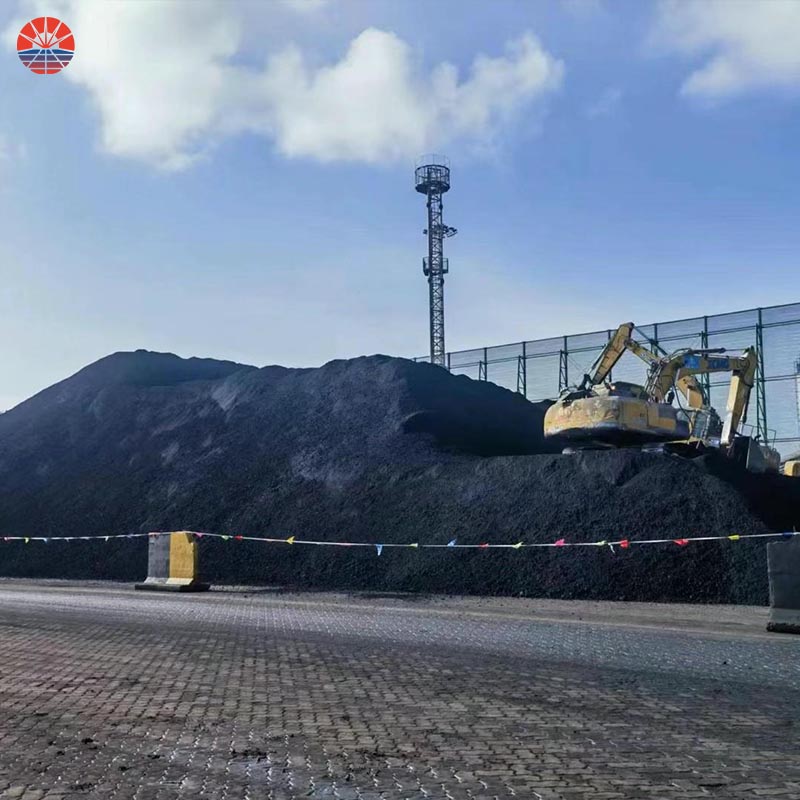What Is Pet Coke
Petroleum coke (petcoke) is used in various industrial applications due to its high carbon content and energy value. Some of the primary uses of petroleum coke include:
Fuel in Power Plants: Petcoke is used as a fuel source in power plants, particularly in regions where it is cost-effective compared to other fuels like coal or natural gas. It is burned to produce steam, which drives turbines to generate electricity.
Cement Industry: Petcoke is utilized as a fuel and a source of carbon in the cement manufacturing process. Its high calorific value provides heat during the cement kiln's combustion process, contributing to energy efficiency and cost savings.
Aluminum Industry: In the aluminum smelting process, petcoke is used as a source of carbon in the production of carbon anodes. Carbon anodes are essential components in the aluminum electrolysis process, where they conduct electricity and facilitate the extraction of aluminum from alumina.
Steel Industry: Petcoke is employed as a fuel in steel mills for the production of iron and steel. It serves as a reducing agent, reacting with iron ore to convert it into molten iron during the blast furnace process.
Refractories: Petcoke is used in the production of refractory materials, which are heat-resistant products used in high-temperature industrial processes, such as lining for furnaces and kilns.
Brick and Glass Manufacturing: Petcoke can be used as a fuel in brick and glass kilns, providing heat during the firing process.
Carbon Electrodes: Petcoke is used in the production of carbon electrodes, which are essential components in some industrial processes, such as electric arc furnaces used in steelmaking.
Anode Paste: In the production of some carbon anodes, petcoke is mixed with pitch and other additives to create anode paste, which is used as a raw material in anode manufacturing.
It is essential to note that the use of petroleum coke has environmental and health implications due to its high carbon content and potential emissions of greenhouse gases and other pollutants. Therefore, its usage is subject to regulatory scrutiny and environmental standards in many regions. In recent years, there has been an increasing focus on finding cleaner and more sustainable alternatives to petcoke in various industries to mitigate climate change and reduce air pollution.
Petroleum coke production process
Petroleum coke (petcoke) is a byproduct of the petroleum refining process. It is produced through the thermal cracking of heavy crude oil feedstocks in a process known as coking. The coking process takes place in large, specialized units called cokers. There are two main types of cokers used in petroleum coke production:
Delayed Coker: In a delayed coker, the heavy residue from the vacuum distillation unit (also known as vacuum bottoms) is heated in large drums or coke drums. The feedstock is subjected to high temperatures (900 to 1,100 degrees Celsius) and pressure for several hours, which causes the long-chain hydrocarbons in the residue to break down into lighter fractions such as gasoline, diesel, and gas oils. The remaining solid carbon-rich material that cannot be converted further is petroleum coke.
Fluid Coker: The fluid coking process is similar to the delayed coking process, but it operates at higher temperatures and lower pressures. In a fluid coker, the feedstock is sprayed into a fluidized bed reactor, where it undergoes thermal cracking. As with delayed coking, the heavy hydrocarbons are converted into lighter products, leaving behind solid petcoke.
Once the coking process is complete, the petroleum coke is removed from the coke drums and undergoes further processing to meet specific market requirements. The petcoke can be calcined, which involves heating the material at even higher temperatures (up to 1,400 degrees Celsius) to remove volatile components and moisture, and increase the carbon content. Calcined petroleum coke is often used in applications where a higher carbon content is desired, such as in the production of carbon anodes for aluminum smelting.
The quality and properties of petroleum coke can vary depending on the feedstock used and the coking process parameters. The composition of petcoke can include varying levels of carbon, sulfur, metals, and other elements, making it suitable for different industrial applications, including fuel in power plants, cement production, and as a carbon source in the steel and aluminum industries.











